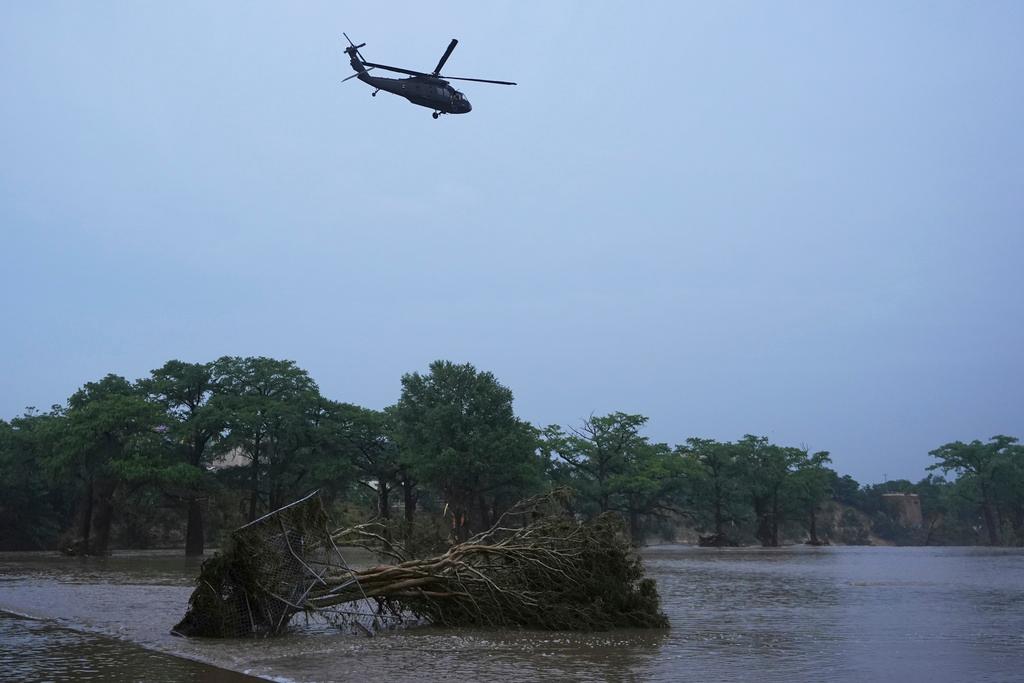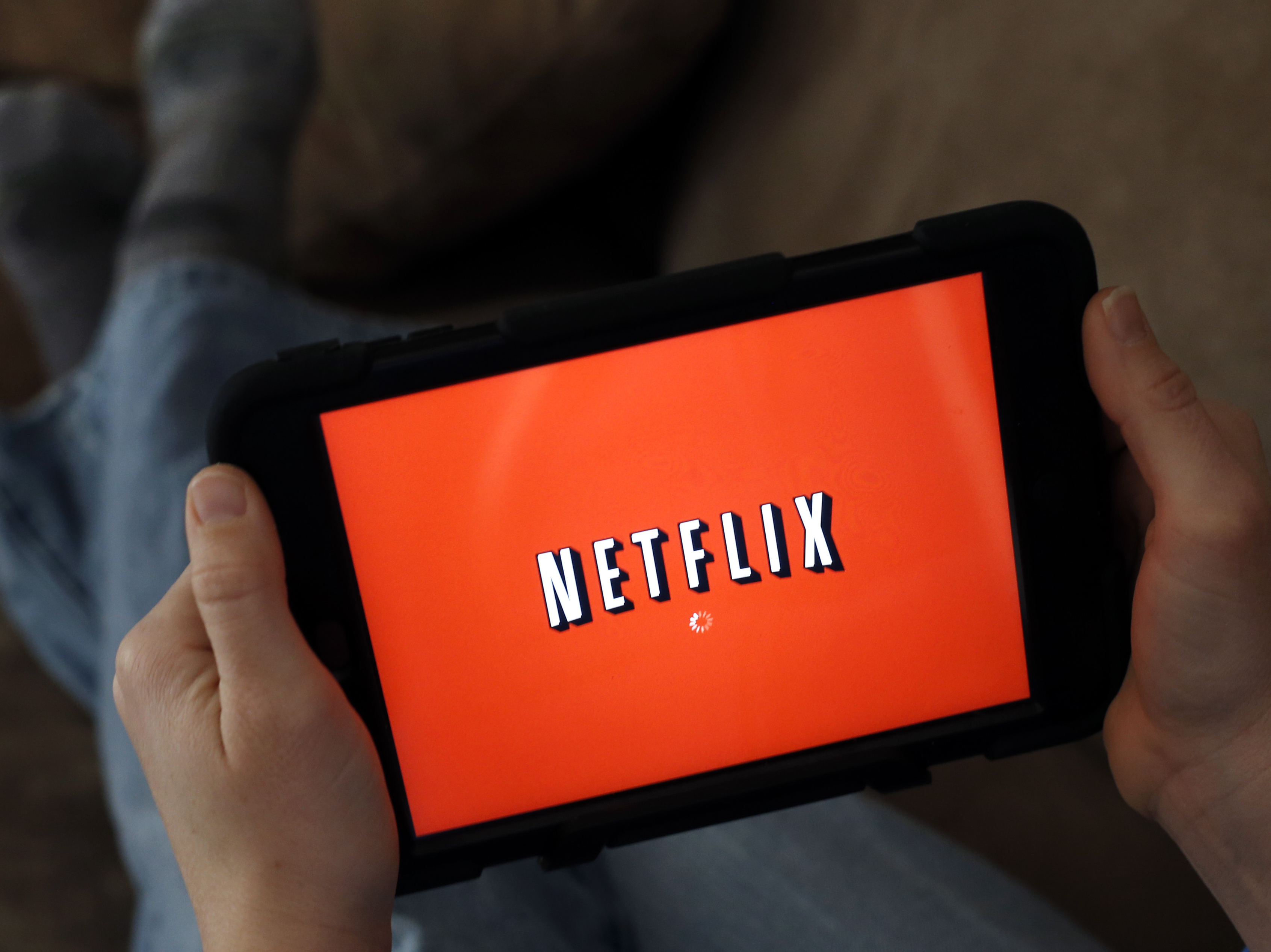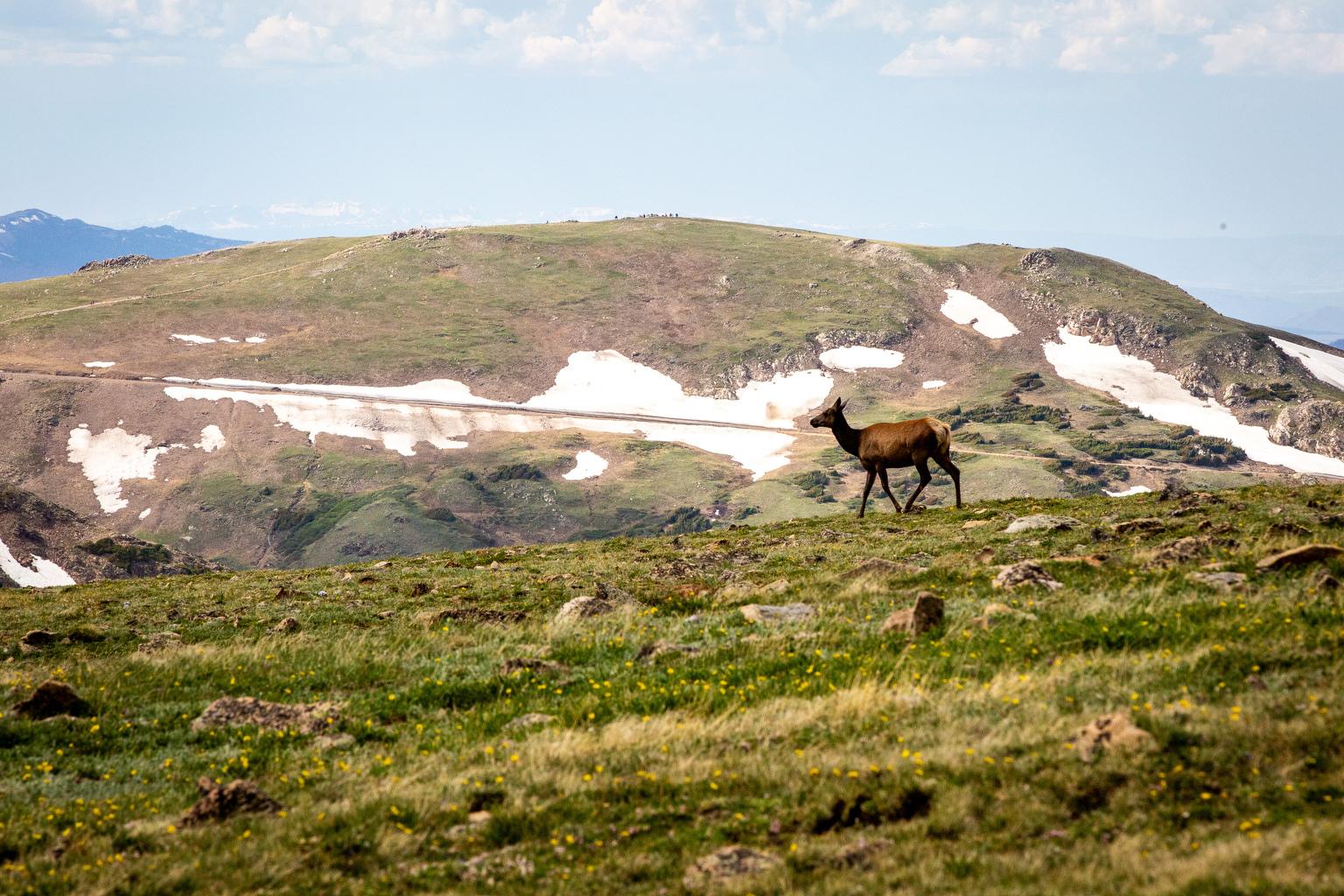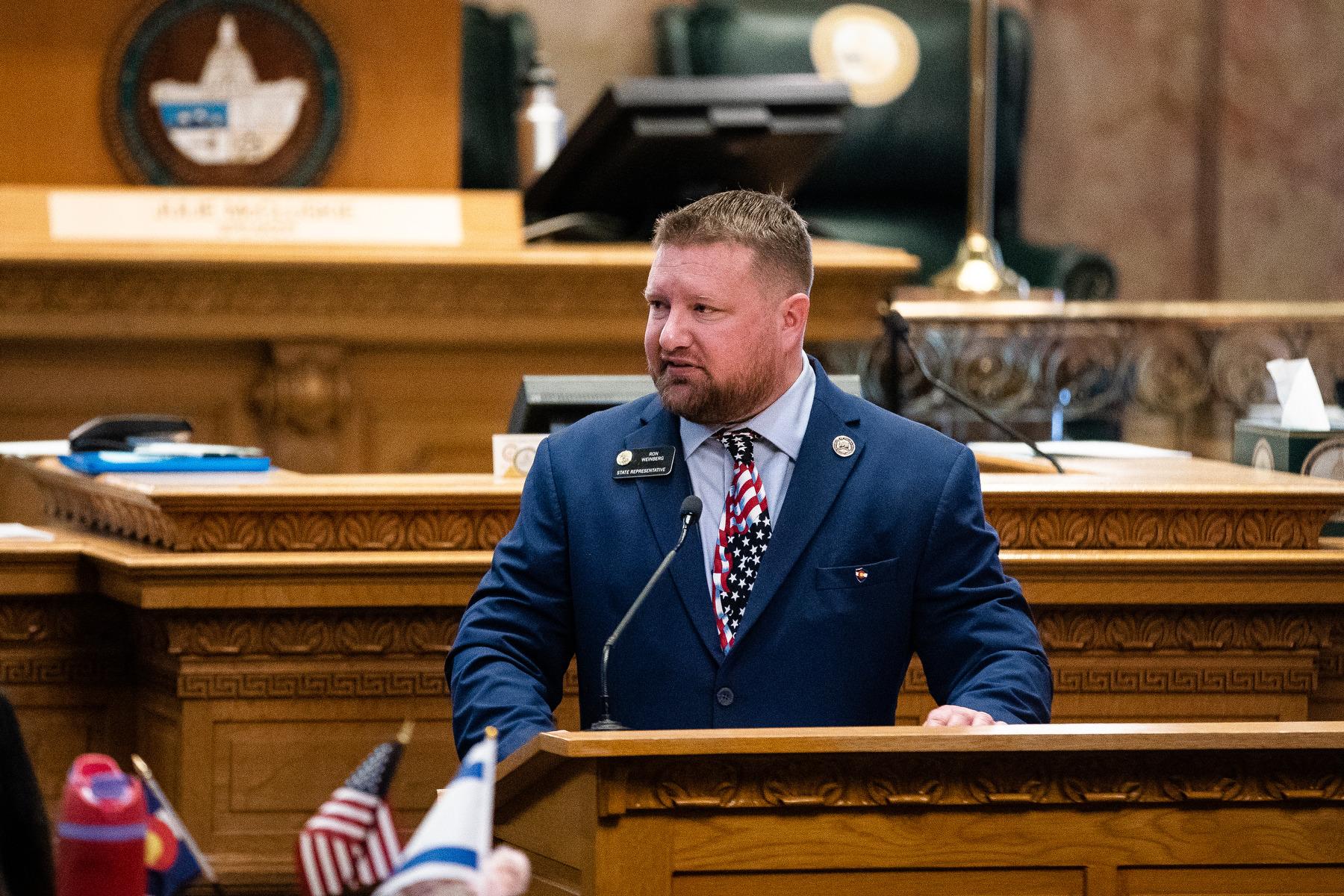
The following is the complete transcript of a conversation between Colorado Gov. John Hickenlooper and Colorado Matters host Ryan Warner that aired on May 28, 2014.
Ryan Warner: Time for our regular conversation with Governor John Hickenlooper. He’s hoping to keep anti-fracking measures off the November ballot … by negotiating a compromise. But there’s not much time. As we speak, groups worried about drilling are working on measures to give local governments more power -- including the power to BAN fracking. Meanwhile, the deadline for the governor to use his veto pen is fast approaching. We’ll ask what bills he might do away with. First… to that massive landslide in Mesa County over the weekend. It’s been called a mudslide, but the governor explains that’s not quite accurate…
Governor John Hickenlooper: It wasn’t all mud, the descriptions we’re getting now. The vast majority is rock and dirt and debris and not a mudslide in the same sense as we saw in Washington. Our hearts go out to the families of the victims. What a fluke catastrophe. We can’t even do rescue/recovery operations now just because of the entire mass seems unstable. I don’t think we’re going to see places in other parts of the state where this would happen but by that same notion, we didn’t think it was going to happen here. So I think our goal here is to keep sure that we keep our eyes peeled and if there is any indication somewhere else that there’s instability in the landscape, we’ll be forewarned.
RW: And whose work is that within the state?
JH: The US Geological Survey has a number of maps all over the United States on various, what they call morphologic conditions. We also have the state Geological Survey, they’re imbedded in the Colorado School of Mines and we’ll certainly reach out to them and if there is any indication that there is a place we should be worried about the risk, we’ll make sure that we put full attention on it.
RW: To another topic, your administration is trying to work out a compromise between the oil and gas industry and fracking opponents, over how much say local governments should have over drilling. Where do the negotiations stand?
JH: Well you know the negotiations are ongoing. This is one of those conflicts between two sides that both, if we listen to either side we say, “Yeah, they’ve got a point.” On one hand, someone who’s been living in a suburban neighborhood for thirty-five years and there’s a meadow across the street and suddenly there’s going to be an oil field there, most of us would find that disconcerting and say, wait a minute, what about my property rights. What about the value of my home and the homes of my neighbors. By the same token, in this state, the person who owns the mineral rights underground, that’s their private property and our constitution has always guaranteed them that they would be able to access those minerals and to tell them that well just because neighborhoods have grown out and now approach where your mineral right is, now suddenly we’re going to decide that your mineral right has no value. And that we’re just going to have government snatch it away, most people would say that’s not the right role of government either. So part of what I’m trying to get to, I don’t think having a 500 foot setback, or a 1500 foot setback, or a 2500 foot setback, I mean that’s not the real issue here. The real issue is how do we get local communities to have a voice in these admittedly industrial activities that affect their neighborhoods. And the difficulty in these negotiations is we just don’t have the time to be as thorough as many of us would prefer. In other words, we’re trying to look at what are the ways that oil and gas activity can be mitigated. Both in terms of sound, what people see, how do we make sure that when they’re drilling a well there’s not all those electric lights in someone’s bedroom window. How do we make sure that even though they’re 1000 feet away, there are ways that we could mitigate the noise and visual impact.
RW: And presumably the clock ticking here are measures on the November ballot which…
JH: Which don’t solve the problem, right. So most of these measures that we’re looking at really don’t give local communities the kind of influence and the voice they would like to have. So trying to find a compromise that can get us close enough so that the communities will feel that they’ve got this voice. I think most of us wish we did have more time but we don’t.
RW: So what does that mean for negotiations?
JH: Well that means that we work on weekends and then we try and figure out on a much more rapid basis what are the compromises that we can live with. And I think both sides are looking at that. I don’t think either side wants to go to a ballot initiative where we’re going to spend $60 or $80 million.
RW: I think if you talk to fracking opponents, they’re perfectly happy to go to the ballot.
JH: Some are, some aren’t. I mean if someone really wants no fracking and no oil and gas, then I think they’d probably prefer to go to the ballot. But when you look, 110,000 jobs in the state of Colorado and I’m accused every day of caring too much about the jobs. And I don’t. I think that we’ve got to give equal weight to making sure that there’s not air pollution in there, that we’re not spilling oil or fluids into streams or ponds. I mean we’ve got to do all that right. Most people I don’t think want to eliminate oil and gas as an activity from the state of Colorado, which, if you banned fracking, that’s essentially what would happen. You can’t, I mean the number of wells each year that don’t use fracking …, it’s probably less than one percent.
RW: Are you still open to a special session or is it getting too late for that?
JH: No, we’re not too late but again there’s no point in calling a special session unless we have an agreement, unless we have a compromise. So we’re continuing to work long hours every day, seven days a week to try and figure out what is the right language, what would this look like and probably one of the most difficult negotiations that I’ve ever been involved with. You know to be honest, I still don’t, you know you asked me three weeks ago or a month ago what I thought the chances were and I said 50/50. I don’t think they’re any better now.
RW: What is the point of no return? Is there a date certain where you go, no, we can’t do this, we gotta look at what happens in November.
JH: Well at a certain point, the people that are supporting the ballot initiatives will decide that they can’t wait any longer and they need to marshal their forces and the people that are going to be against the ballot initiatives, they’re going to decide we don’t want to get this too close to the election day so we’re going to start marshaling our forces. It’s almost like you’ve got these two armies and they’re both poised for battle and we’re trying to figure out how to get them to go home to their farms and ranches.
RW: What if a community if willing to compensate the owners of mineral rights in exchange for saying no fracking in a certain area?
JH: I would have no problem with that. I mean you’d have to negotiate and have some sort of a mediator to figure out what the mineral asset were. But that’s what I said from the beginning when we were talking to a couple of these local communities that ban fracking, I said listen, the state would even, we’d have to look very careful but we have revenues that come from mineral severance taxes, maybe some portion of this should be used in conjunction with the local community right. So the state would put up 25% and the local community would put up 75%, that’s just an example, right. We’ve never gotten that far because the numbers become so large that most local communities and even the state would have a hard time justifying spending that kind of money.
RW: You’re listening to Colorado Matters. I’m Ryan Warner and we are speaking with Governor John Hickenlooper, Democrat, of Colorado. He joins us regularly in conversation. You have until June 6th to decide whether to veto any of the remaining bills passed by the legislature. And I want to ask you about one specifically. It’s Senate Bill 197. It would require more transparency and public input when the state enters contracts to allow private companies to control roads. This came after the controversy over the contract for a company to construct and then collect tolls on a portion of US36. Supporters appear to be worried that you might veto this measure. Do you have concerns about it?
JH: Well there are a number of bills that we’re looking at closely and that’s one of them. I have no problem with the transparency aspects of it but it turns out there’s an awful lot more in that bill that we requested repeatedly that it wouldn’t be added to the bill and in the end it was. And I think that’s the trick here. In other words, one of those things they said was that any public/private partnership can go further than thirty-five years. It can’t go to fifty years. Well we know that one or two of the projects that we’re looking at in Colorado, which I’m quite sure our taxpayers don’t want to pay for, and by bringing in a private partner, we’re able to mitigate that cost and that risk, significantly, they would have to be a forty and in one case a fifty year project. Well, this bill would make that project impossible. So there’s more to it than just the transparency.
RW: I mean that to me sounds like a non-starter for you.
JH: Well it’s something we’re trying to figure out if there’s a way we can get around it. I’m trying to make these decisions based on what is the long-term best interest of the state of Colorado. On that one, you know, some of these bills I think, there’s several that we might end up having to veto that we’ll say come back next session and we’ll work on this together and do this in a way that will work.
RW: How about another example of one you’re considering vetoing?
JH: Oh, I don’t know, you know our biggest problem is we usually try to find one or two bills that we know that when we veto them, we’ll tick everyone off. We want to be able to make everybody angry. We haven’t found a bill like that this session so we’re a little disappointed.
RW: But you did say you were considering a number of bills. What else is in that category?
JH: Well as soon as I start listing them, we haven’t been talking to the bill sponsor, so if I list them before we’ve talked and had discussions with the bill sponsors, then I really would make people unnecessarily angry.
RW: Governor, we recently asked our listeners to tell us how they think legal, recreational marijuana has affected Colorado’s image. You, of course, are constantly interacting with out of state politicians and businesses. Nearly six months after recreational sales started, how do you think it’s changed Colorado’s profile, nationally, internationally?
JH: Well it obviously has raised our profile in ways that are not always complimentary. I don’t think, I talked to a fair number of out of town CEOs that have operations here and want to expand them or are looking at moving a company here. They don’t see it as a workforce problem or an image problem. That being said, listen to late-night TV, listen to, look at newspapers and magazines in Europe, they’re fascinated by what we’re doing here. In many cases it’s not necessarily negative in terms of what it means for Colorado but sometimes it’s not good.
RW: It’s interesting, you haven’t talked about it yet as much of an opportunity and yet there are individuals and businesses flocking here who see a lot of money to be made and could that potentially translate into tax revenue, jobs, etc.
JH: Sure. I think definitely that if you talk to people who have commercial real estate around, well up and down the front range and even in rural parts of Colorado, they outfit it with some higher amp service and put in a bunch of grow lights and all of a sudden they’re in business, right. I think if you step back and look at it from a distance, imagine the old system where a lot of people were smoking marijuana illegally and they were buying it on the black market, the large share of that would go back to Colombia or Mexico or Thailand or wherever the marijuana came from. Now the growing of that marijuana, the harvesting, the packaging, the retailing is all happening in Colorado and creating Colorado jobs. It does generate Colorado tax revenue. From that point, this is a good thing. If you just look at the economic structure, it’s definitely a good thing. What we’re worried about though is the effect it’s going to have on our kids.
RW: Governor, thanks for being with us.
JH: It’s always a pleasure.








